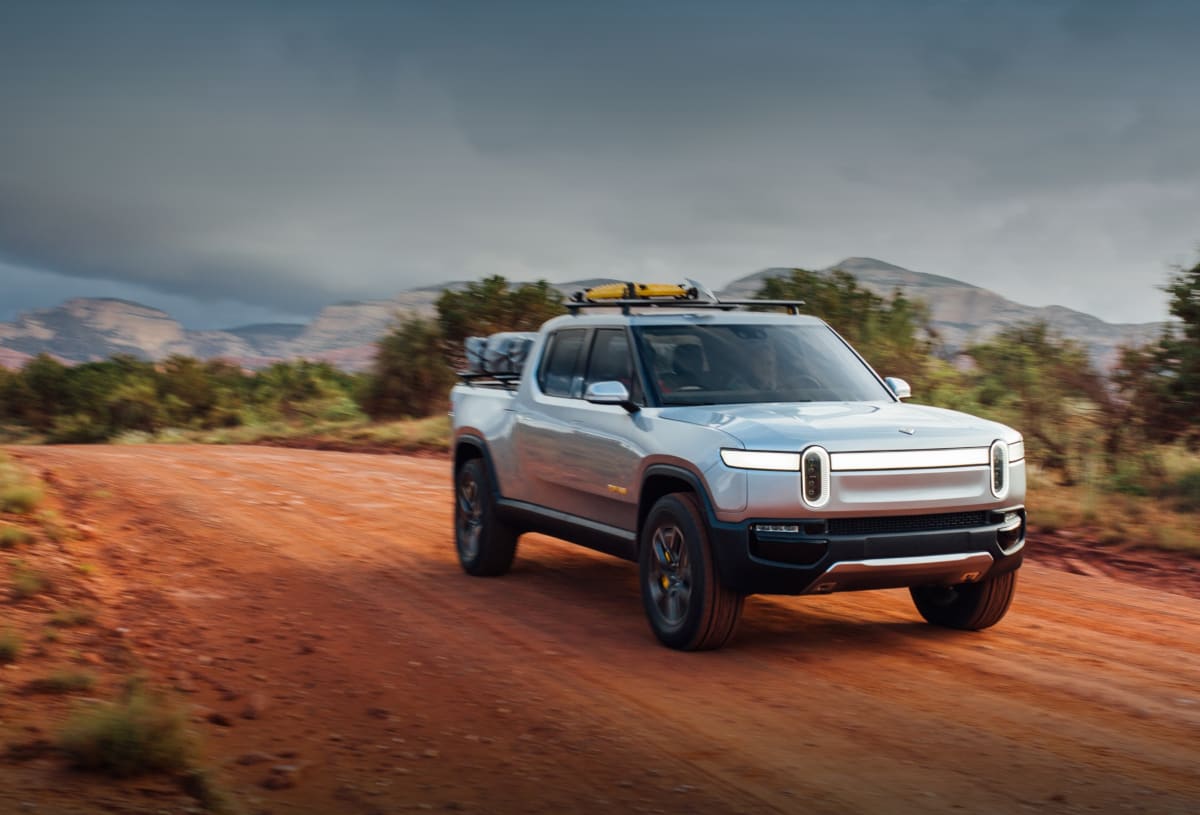
What a horrible year: Rivian would be tempted to say.
Everything went wrong on the stock market for the young electric vehicle manufacturer, considered one of Tesla's most serious rivals.
Let's examine the numbers that tell the nightmare of the Irvine, California-based company. But first, it should be remembered that Rivian produces the R1S SUV, the R1T pickup/truck and the EDV commercial van.
Rivian (RIVN) stock started the year on Wall Street at $103.69. At the time of writing, Rivian’s stock is trading around $19.14. In one year, the group's shares have lost 81.5% of their value.
Market capitalization, which was $91.6 billion on December 31 2021, has melted to $16.9 billion. Basically, nearly $75 billion in market value has completely evaporated in one year.
On November 10, 2021, Rivian had made a remarkable entrance on Wall Street. For this IPO, Rivian's share price was $78. The company raised $12 billion in the biggest initial public offering since Facebook’s debut in 2012. But a year later, the drop in the automaker's stock is 75.5% compared to its IPO price.
Huge Missteps
Whatever the parameter to which we compare the Rivian, it is clear that it is a real stock market rout that the company is going through. The only consolation for Rivian is that Lucid Group (LCID), Tesla's other young rival with which it is often compared, also had a bad stock market year. Lucid’s stock has lost 82.4% of its value this year.
Finally, Tesla (TSLA) is also in turmoil. The stock price of the group of Elon Musk has fallen by 65% this year. But Rivian should be concerned to see that legacy carmakers like Ford (F) and GM (GM) have seen less brutal declines in the stock market: -43.5% for the stock of the Dearborn group and 42% for the shares of the Detroit, Michigan-based automaker.
The reasons for Rivian's problems have been the same since the start of the year: continued disruptions to supply chains which are driving up costs and are having a colossal impact on its ambition to mass-produce vehicles.
The year 2022 was to be the year of production ramp-ups to meet strong demand, but it turned out to be one of costly missteps, such as the sudden increase in prices which tarnished the group's reputation.
At the end of February, the company raised the price of its electric pickup truck R1T by 17% and its SUV R1S by 20% due to material costs and chip shortages, as it said at the time. The price increase applied to all customers, both new and those who had already placed their orders. In the face of outcry and cancellations, Rivian apologized.
"We wrongly decided to make these changes apply to all future deliveries, including pre-existing configured preorders," apologized at the time chief executive officer RJ Scaringe.

Rivian
The carmaker also ended, a few days ago, a strategic partnership with Mercedes-Benz, which would have allowed it to penetrate the European market and reduce its costs.
"We’ve decided to pause discussions with Mercedes-Benz Vans regarding the memorandum of understanding we signed earlier this year for joint production of electric vans in Europe," said Scaringe on December 12. "As we evaluate growth opportunities, we pursue the best risk-adjusted returns on our capital investments."
Unhappy Shareholders
Rivian is burning a lot of cash and is facing rising costs due, in particular, to soaring prices for raw materials and other logistics costs. In the short term, the end of the partnership complicates Rivian's ambitions to compete with Tesla, which is present in three important markets - North America, China and Europe.
Some investors are beginning to lose patience, like billionaire George Soros, who further reduced his stake in the third quarter. Soros Fund Management held 16.36 million Rivian shares as of September 30, down 8.2% compared to the second quarter.
Ford also sold a large part of its stake after significant asset write-downs. Amazon (AMZN), which held approximately 17.34% of the capital on September 29, on the other hand, has maintained its confidence in Rivian for the time being.
The other big question is whether Rivian will be able to meet its conservative goal of producing 25,000 vehicles this year. The company has a net order book of 114,000 units apart from the 100,000 orders by Amazon. The problem is not knowing when Rivian will be able to deliver these vehicles.
During the third quarter, the firm widened its losses, recording a net loss of $1.72 billion, against $1.23 billion in the third quarter of 2021.
"Throughout the quarter, our cost of materials was impacted by inflationary pressures, which we believe will continue to have an impact on our gross margin for the near future," Rivian said.







